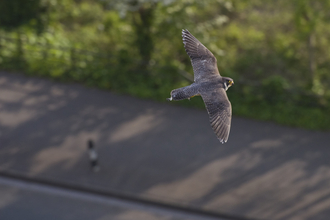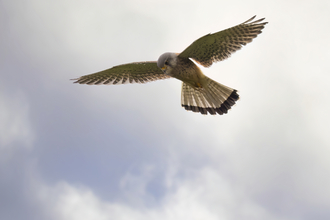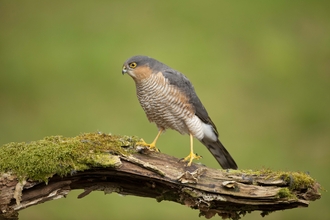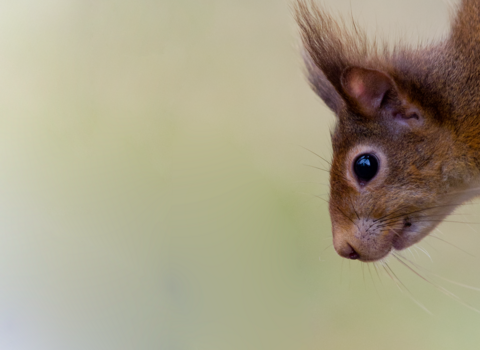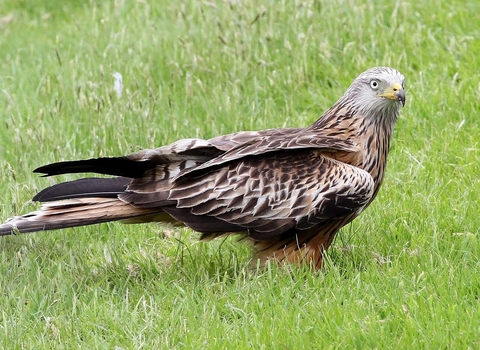
©Margaret Holland
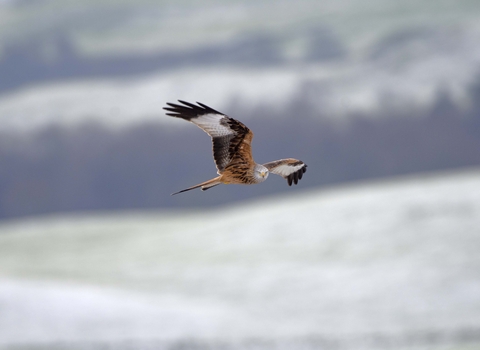
©David Tipling/2020VISION
Red kite
Seeing a red kite soaring high in the sky is a true delight! Once a very rare bird, thanks to successful reintroduction projects these wonderful birds can now be seen in lots of places in the UK.
Scientific name
Milvus milvusWhen to see
January to DecemberSpecies information
Category
Statistics
Length: 58-64cmWingspan: 1.8m
Weight: 1-1.2kg
Average lifespan: 4 years
Conservation status
Classified in the UK as Green under the Birds of Conservation Concern 5: the Red List for Birds (2021). Protected in the UK under the Wildlife and Countryside Act, 1981. Listed as Least Concern on the global IUCN Red List of Threatened Species.
About
Once considered a threat to game birds and domestic animals like cats and dogs, the red kite was hunted close to extinction in the UK. Now a protected species – and following several reintroduction attempts, the number of red kites has recovered and they can be spotted in lots of places across the UK. Rather than purely hunting for food, red kites are in fact largely scavengers, so mainly like to eat scraps and small prey like rabbits. Listen out for their ‘mewing’ calls!How to identify
The red kite is a large bird of prey with angled, red wings that are tipped with black and have white patches underneath in the 'hand'. It has a long, reddish-brown, forked tail.Distribution
Once restricted to Wales due to persecution, reintroductions have helped red kites make a comeback across the country. They can now be found from southeast England to the Highlands of Scotland.Did you know?
Red kites were common in Shakespearean London, where they fed on scraps in the streets and collected rags or stole hung-out washing for nest-building materials. Shakespeare even referred to this habit in 'The Winter's Tale' when he wrote: 'When the kite builds, look to lesser linen'. The nest of a red kite is an untidy affair, often built on top of an old crow's nest. It is lined with sheep's wool and decorated with all kinds of objects like paper, plastic and cloth.Watch
Red Kite (https://vimeo.com/452202025/641d1875ba)
Red Kite by Tom Hartwell

